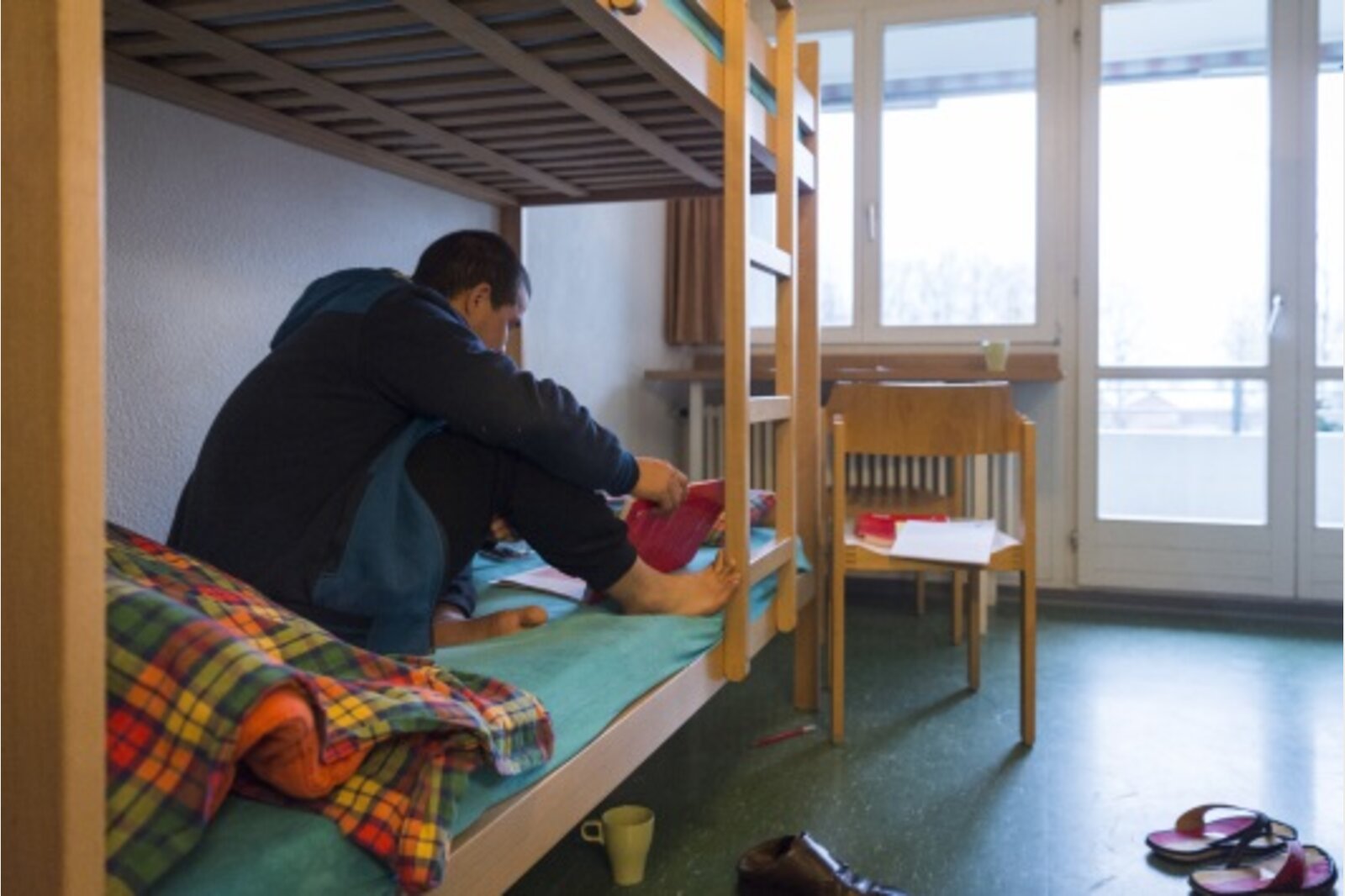Press release regarding judgment F-1389/2019
The allocation to a specific federal centre does not deprive an asylum seeker of his right to liberty
The Swiss Federal Administrative Court rules that the allocation to the specific centre in Les Verrières ordered by the Swiss State Secretariat for Migration (SEM) and the measures imposed as part of the operation of the centre do not deprive the appellant of their right to liberty. They do, however, restrict their freedom of movement, but in a manner that is justified in the present instance. Furthermore, the FAC finds that the person in question was able, in this case, to assert his right to an effective remedy.

Between 3 December 2018 and 1 September 2019, the specific federal centre for asylum seekers in Les Verrières received several asylum seekers whose behaviour disrupted the proper operation of the ordinary federal centres. In accordance with Art. 24a of the Asylum Act (AsylA), one of these asylum seekers was allocated to the specific centre in Les Verrières for a period of 14 days on account of his disruptive behaviour at the federal centre for asylum seekers where he was residing. He complained about this allocation and the arrangements it entailed, specifically the curfew, restrictions on visits, meal and check-in schedules, the assignment of household chores and of a dormitory, as well as the surveillance of the premises by security guards. He argued that he was deprived of his personal freedom by being placed in a location comparable to a detention centre and that he did not have access to an effective remedy to complain to an independent authority.
No deprivation of freedom
In its landmark judgment, the Swiss Federal Administrative Court (FAC) indicates that deprivation of freedom within the meaning of Art. 5 ECHR implies that the person in question is held against their will in a limited space for a minimum period of time. This was not the case for the appellant who had a certain degree of freedom of movement during his allocation to the specific centre and could leave it outside of curfew hours.
Restriction to freedom of movement in accordance with the law
However, the allocation to the specific centre constituted a restriction to the freedom of movement of the person in question within the meaning of Art. 12 ICCPR. This restriction, provided for by a federal statute (AsylA), was justified by the disruptive behaviour of the person in question and proportionate, and did not violate this particular human right.
Right to an effective remedy
The right to an effective remedy is provided for in Art. 2 ICCPR in particular. Pursuant to Art. 107 AsylA, the allocation decision takes the form of an interim ruling which can only be contested in the context of an appeal against the final asylum decision. While the appeal before the FAC theoretically satisfies the requirement of an accessible and effective remedy before an impartial and independent authority, the question remains whether it can still be deemed effective when the waiting period between the allocation order and the notification of the underlying asylum decision is prolonged. During this waiting period, the allocation may, in fact, be extended or a new allocation may be ordered without the asylum seeker having the opportunity to complain within a reasonable time.
In interpreting the AsylA in a manner consistent with human rights, the FAC considers that it is certainly not necessary for the applicant to be able to appeal against his allocation immediately. For his right to an effective method of appeal to be guaranteed, he must nevertheless be able to do so within a maximum period of 30 days from the date the allocation measure was taken, a time period which was respected in this case.
The FAC applied the principles developed in the present judgment in a parallel matter decided in judgment F-1675/2019 of 20 April 2020. Both judgments are final and may not be appealed to the Federal Supreme Court.
Contact

Rocco Maglio
Press secretary
